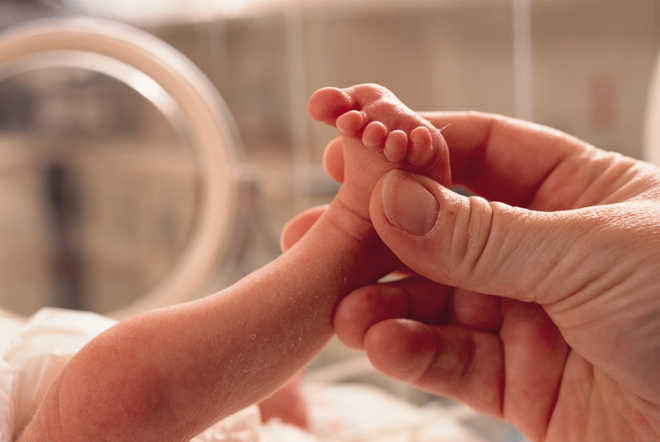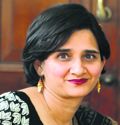
Our first-born daughter, Sahar, and I once took our predicament to her younger sister. “Aliza, we are doomed to be like each other.”
“Doomed,” she repeated.
“Yes, this is our fate. We cannot escape it.”
“You mean destiny?”
“Yes,” one of us said.
“This is your destiny and your doom,” said Aliza, beginning to enjoy the moment.
“Yes,” I said. “Is this a phrase from a movie?”
“From Merlin, a TV show,” she answered.
This weekend, I become an adult as a parent as our first child turns 18. I don’t want to make too much of it and yet how can I not? Some milestones feel so overwhelming that left to myself, I would rather sneak past them quietly, looking away, acting distracted. Thankfully, there are others in my daughter’s life determined to make a big deal of it.
When she was still in my womb, I used to refer to Sahar as Baby Popo. I would text my brother in a faraway city and mention Baby Popo. He would text back sending love for her. Every time I caught sight of my big watermelon stomach in the office bathroom, I would laugh out loud and grin in the mirror.
When she was born, she seemed so regal and self-contained that Popo didn’t seem to fit and we chose to name her Sahar — a word that means dawn. A new beginning.
Conceiving her had brought an unprecedented calm into my life. It was a fragile pregnancy in the beginning and often the doctors would allude to the fact that we shouldn’t get too attached to the idea of this baby. To me, this meant something else altogether. Without any effort or planning, I became detached from everything else that sought to consume my energy. It didn’t matter what anyone expected from me. Workplace anxieties faded into the background. My inner world expanded and my baby and I became a universe in ourselves. It was my job to nurture and protect myself so that I could keep her safe. And that’s what I did.
It is a perspective Sahar has brought back to my life repeatedly as I juggle between home and the world, choosing and changing my priorities as I try to be both a responsible adult and a good parent.
I tend to take everything too seriously — including myself — and she reminds me to slow down, to look at her and listen. She makes endless concessions, at times having to resort to bitter anger to get my attention. As mother and daughter, we can find ourselves too close and yet unable to reach the other.
As we complete one year of being trapped by the pandemic, I realise that one of the unexpected gifts of being locked down is that we were forced to confront our conflicts. We could not pretend to go for relaxed walks on empty streets at the end of the day when we were also dragging the weight of unspoken words with us.
We began to talk. I do not want to hear accusations. She does not want to hurt me. She has unmet needs. She wants her mother to know. On the cusp of adulthood, she does not have the resourcefulness to filter the uncertainty, anxiety and inhumanity of the times we are living through. What is she supposed to do? She is overwhelmed.
“I feel like Sherlock when his brain lets him down,” she tells me. “He has always been able to rely on himself, and suddenly nothing makes sense. I have always been able to figure things out, to find a solution, to talk to the right people, read the right things. But now I feel lost.”
As a parent, I struggle with my own inadequacy. I can no longer hold her in my lap and reassure her that everything will be alright. I have to let her muddle through her distress. Be available, and yet not attempt to offer solutions.
In all this, I often forget to do the simplest things. Hold each other. Validate the other’s feelings by listening deeply. Lighten the moment by doing things that spark joy. Offer a hug. Eat ice-cream. Try a hop, skip and jump. Paint something. Share a joke.
Don’t do anything. Just be.
Over the years, I have repeatedly stumbled upon the answer that Sahar is the key. She reflects what the rest of us are going through. She absorbs our unspoken anxieties. They get amplified in her. When she is at peace, it is because the rest of us are doing okay too. Perhaps this is both the privilege and the pain of the first-born in every family.
The writer is a filmmaker and author.
Join Whatsapp Channel of The Tribune for latest updates.




























